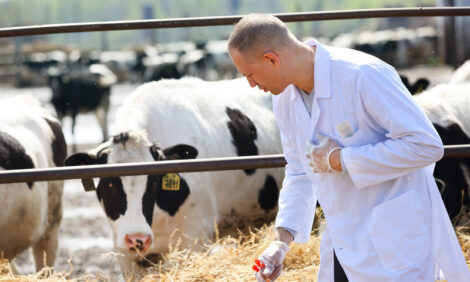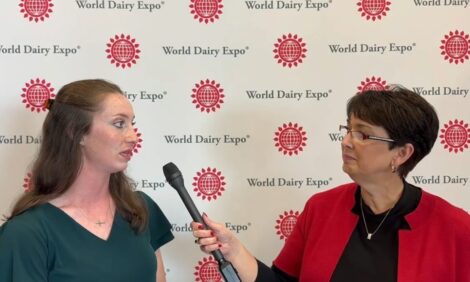



Genome Analysis Helps Breeding More Robust Cows
Advances in genetic analysis are allowing cows to bred for fewer parasitic problems and longevity, explain researchers at Wageningen University.Genome analysis of 234 bulls has put researchers, including several from Wageningen Livestock Research, on the trail of DNA variants which influence particular characteristics in breeding bulls, write Wageningen experts.
For example, two variants have proven responsible for disruptions to the development of embryos and for curly hair, which is disadvantageous because more ticks and parasites occur in curly hair than in short, straight hair.
These are the first results of the large 1000 Bull Genomes project on which some 30 international researchers are collaborating. They report on their research in the science journal Nature Genetics.
Most breeding characteristics are influenced by not one but a multiplicity of variants. It is therefore important to be able to use all the variants in breeding, say the Wageningen researchers.
In order to make this possible, Rianne van Binsbergen, PhD researcher at the Animal Breeding and Genomics Centre of Wageningen UR, investigated whether the genomes of all the common bulls in the Netherlands can be filled with the help of these 234 bulls. Currently, these bulls have been

genotyped with markers of 50,000 or 700,000 DNA variants. The positive results indicate the direction for further research into the practical use of genome information in breeding.
Dairy and Beef Cattle
The project demonstrates how useful large-scale DNA analyses can be, says Professor Roel Veerkamp, Professor of Numerical Genetics at Wageningen University and board member of the 1000 Bull Genomes project.
He emphasises that the requirements for dairy and beef cattle are becoming ever more exacting: "Until the mid nineties, a cow primarily had to produce a lot of milk. But since then, expectations have gone up.
"Farmers are looking for more robust cows. In practice, that means good fertility, longer life, udders that give good protection against infections, improved claws and more efficient feed utilisation.
"That adds up to a lot of characteristics, which are governed by all kinds of genes. In order to bring them together in a cow in the best and fastest way possible, genomic selection is important for breeding organisations such as CRV, and by means of genome analysis we want to improve this further", says Professor Veerkamp.
Bull Genome
The genome of a bull consists of 3 billion ‘letters’. In the 234 bulls studied, the researchers found a total of over 28 million positions on the DNA which displayed variation, in other words where the animals have different letters. Currently, CRV uses approximately 50,000 variants, the so-called single nucleotide polymorphisms (SNP) for genomic selection, by linking SNP patterns of a very large number of animals to characteristics which are important for robustness.
Together with CRV and the other partners in the Breed4Food programme, the researchers are investigating whether the new genome information can help to predict even better which characteristics the offspring will have.
The bull analysis presented at this time is the first phase of the 1,000 Bull Genomes project, a database which is planned to incorporate the genomes of a thousand bulls from all over the world. The bulls analysed to date are primarily from Australia, the Netherlands, Germany and France. "However, there are now many more countries involved and we have already exceeded 1000 bulls", says Professor Veerkamp.


